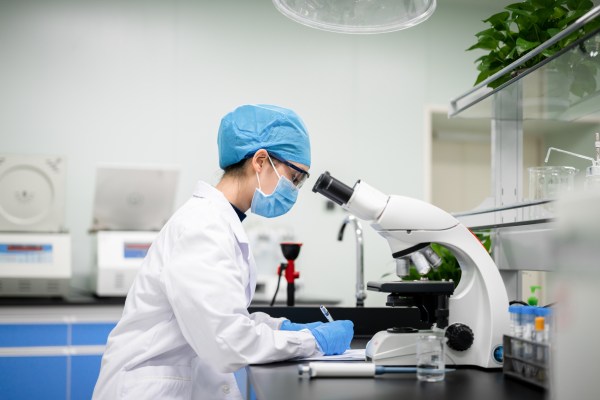
US sanctions on China could extend to biotech, official says • TechCrunch

On the heels of the Biden administration’s decision to impose sweeping chip sanctions on China, there are indications that China may well also eliminate accessibility to other sorts of vital U.S. technologies such as biotechnology, an place that has traditionally observed shut cooperation between the two international locations.
Locations “on my radar” for feasible further export controls include things like quantum computing, biotechnology, and synthetic intelligence, reported Alan Estevez, Commerce Section undersecretary for business and safety, in accordance to The Washington Submit.
The concept is stressing for an market that is intrinsically international. Biotech is a person of the couple of areas, along with climate policy, that transcends nationalities and boundaries among countries. Scientific progress in China could well preserve life in the U.S.
The globalization of the sector has also resulted in better efficiency. As we wrote before, biotech firms frequently retain a existence in China and the U.S. to leverage the unique strengths of each sides. In China, they harness huge reams of client knowledge, rapidly and price-successful medical trials, as properly as area tax cuts, government funding, and sponsored offices to advance their exploration.
At the exact same time, they retain operations in the U.S. to tap the country’s R&D expertise and perform in the direction of Fda regulatory acceptance and commercialization. It’s not unheard of to see biotech startups increasingly labeling by themselves “born global” and utilizing executives with activities in China, the U.S., and other nations around the world.
Needleless injection system maker NovaXS, for example, was founded by a Berkeley researcher who headquarters the enterprise in the U.S. but conducts scientific trials in China. Xtalpi, a person of China’s most-funded drug discovery startups, conducts analysis and organization development in Boston, where it “maintains near conversation with professors and industry experts from the study community as very well as from the pharmaceutical market,” although preserving many R&D facilities throughout China.
When questioned formerly why the drug discovery business Insilico straddles China and the U.S., founder and CEO Alex Zhavoronkov in contrast the area to the early semiconductor industry where by “research was completed largely in the U.S. whilst components creation took place in China.” Eastern Chinese metropolis Wuxi primarily has emerged as a international hub for contract exploration corporations, which perform outsourced work for intercontinental pharmaceutical and health-related product firms.
Biotechnology is “a really complicated, uncertain, and really dangerous process that fails 95-99% of the time if you get started from goal discovery. To set just one drug on the current market, you need 10-15 decades, $2-3 billion pounds, and the system fails 95-99% of the time,” Zhavoronkov noticed.
“International collaboration in biotechnology is a way to share this huge threat and price tag. And by limiting collaboration in this discipline or even chatting about it, the politicians show a lack of essential knowing of the industry and disregard for the well being and nicely-remaining of their voters,” he added.
Without a doubt, managing the biotech sector with a protection-driven technique could harm U.S. competitiveness, argued two U.S. scholars specializing in China, producing for ChinaFile:
In contrast to the semiconductor and telecommunication sectors, whose development is dependent on pricey tools and difficult-to-obtain producing know-how, limitations to entry in biotechnology are very low. Likewise, as Eric Lander’s now infamous mapping of CRISPR’s enhancement illustrates, both foundational investigate and crucial improvements in biotechnology generally acquire position in the community domain and develop on incremental progress created throughout the world. When breakthroughs, like employing CRISPR as a means of gene-enhancing, do come about they spread via worldwide scientific networks with minimal heed for nationwide boundaries. Consequently, it is not a zero-sum market in which a solitary innovation sets any firm or state forward for a prolonged period of time.
